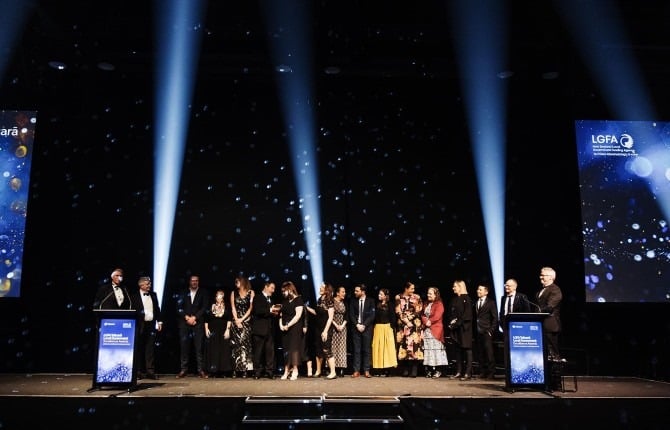
Strengthening Building Compliance in Vanuatu
Ryan Cameron from Wellington City Council reports back on his PacificTA visit to Port Vila.

Navigating Resource Management Reform
An update on the RM reforms and the work going on at Taituarā to support councils through the transition.

Growing Together: Community-Led Development Lessons from Canada
Morag Taimalietane reports back on her Overseas Manager Exchange to British Columbia in June 2025.

Recognizing our distinguished members in 2025
Celebrating our members who have contributed their time, energy and passion to the sector and Taituarā.

Te Hui Taituarā 2025 – unleashes impact in Ōtautahi Christchurch
Te Hui Taituarā brought together local government leaders for kōrero, inspiration, and connection.

Going for growth – delivering outcomes for people and places
Local government is under immense pressure with financial, structural, and political challenges.

Economic regulation for water services begins with an information disclosure regime
Economic regulation of water coming soon for local government under Commerce Commission oversight.

Predator Free Wellington named as 2025 Supreme Award winner
Wellington City Council’s groundbreaking initiative, has claimed the Taituarā Supreme Award.

Record entries in GHD Award Excellence in Environmental Leadership
A record field of eight to contest this year’s GHD Award for Excellence in Environmental Leadership.

Five enter inaugural award for Cost-Effective Impact
This Award recognises projects and programmes that demonstrate councils doing more with less.

Diverse range of partners feature in this year’s Award for Collaboration
Collaboration is a critical strength of local government to achieving great community outcomes.

Nine enter Te Tohu Waka Hourua – the Award for Council/Māori Partnerships
This Award recognises initiatives demonstrating outstanding results working in partnership with Māori.
